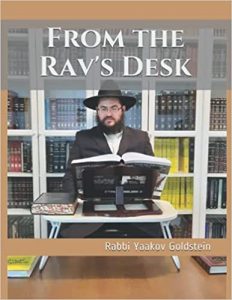
*As an Amazon Associate I earn from qualifying purchases.
Was Mordecai the uncle or cousin of Esther?
- Question: [Wednesday, 7th Adar 2, 5782]
My whole life I grew up under the impression that Mordecai was the uncle of Esther. Recently, someone told me that this is incorrect and really they were first cousins. Which is correct?
Answer:
According to the simple reading of Scripture, they were first cousins. However, there are sources which state that they were uncle and niece. Hence, both traditions have sources in Jewish literature.
Explanation:
It is explicitly stated in two places in Scripture of Megillas Esther that Mordecai was the first cousin of Esther. In Chapter 2, verse 7, it states “[Mordechai] was Omen Es Hadasah, who is Esther Bas Dodo-the daughter of his uncle.” Likewise, in 2:15 it states, “And when the turn of Esther the daughter of Avichayil, the Dod-uncle of Mordechai.” The daughter of one’s uncle, is one’s first cousin, in contrast to the daughter of one’s brother, which is one’s niece. Hence, it is clear from Scripture that they were first cousins and not uncle and niece, and that Esther was the daughter of Avichayil [a male] and Mordechai the son of his brother, Kish. And so is explicitly translated in the Targum on these verses who writes “Beras Achvoiy,” which means the daughter of his father’s brother.
However, the Targum on verse 7:6 and Targum Sheiyni on the above verse, all translate the above words “Dod” in both areas of Scripture as “Achaveiy-brother,” thus making Esther, the daughter of Mordecai’s brother, according to which, the relationship was one of uncle and niece and not first cousins. So is likewise explicitly written in the commentary of a number of Rishonim, including the Rambam and Even Ezra, that Mordechai was the uncle of Esther. The basis for this reinterpretation of the simple words of scripture is the fact that we sometimes find in scripture that a cousin is referred to as an uncle, and perhaps the same can apply vice versa, that an uncle can refer to a cousin. So is explicitly written in Parshas Vayeitzei 29:12 where Yaakov tells Rachel that he is her father’s brother, when in truth he was her father’s nephew. Hence, we see sometimes a first cousin calls himself an uncle, and perhaps the same can apply vice versa.
On the other hand, we can counter argue that perhaps they were really first cousins, and all the sources which say that they were uncle and niece really mean first cousins. Vetzaruch Iyun. To note, that all the above is from the reliable sources of Jewish literature, from which it is evident that we find a discrepancy in this matter, despite the explicit wording of Scripture. However, in secular [and Christian] books, they all accept the notion that Mordechai was the uncle of Esther.
The Rebbe’s response: There is a Maaneh of the Rebbe in which he corrected a pamphlet which stated that Mordechai was the Uncle of Esther and instead replied that Mordechai was not the Uncle of Esther.
Sources: See Or Yisrael Monsey 32 p. 142; Opinions which hold that they were first cousins: Esther 2:7 and 15; Targum ibid; Opinions which hold that they were uncle and niece: Targum 7:6; Targum Sheiyni 2:7; Even Ezra 8:1; Pirush Harambam on Megillas Esther 8:1 “Mordechai is my uncle, my father’s brother”; Pirush Rebbe Shmuel Di Uzida 8:1; Menos HaLevi 8:1 “He is my father’s brother”; Meiam Loez 8:1 “He is my uncle, my father’s brother”; Krovetz of Purim in end “Takfah Im David” and the Siddur Yaavetz comments that this refers to Mordechai her uncle; Midrashic compilation of Louis Ginzberg Legends of the Jews Vol. IV, page 387; Secular books [Lehavidl] which state Uncle: Josephus, Antiquities of the Jews, 9:198 Non-Jewish, translations, the Old Latin (3rd-5th century) and the Vulgate (ca 390-405 CE); Greek Septuagint uses the phrase “father’s brother”; Thus, in the Catholic tradition Esther is described as Mordechai’s niece.

 Donate
Donate
Leave A Comment?
You must be logged in to post a comment.